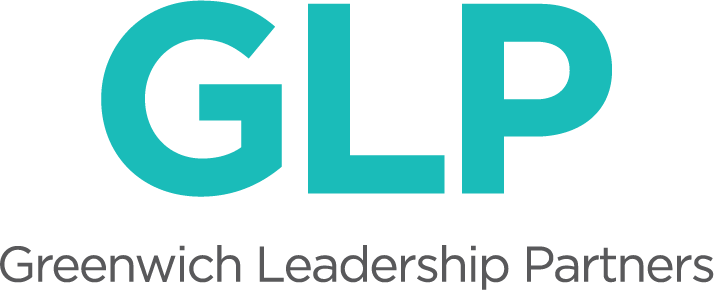Just in time for the extended summer holiday weekend, we’re excited to share with you our summer must reads!
We’re focused on two themes this summer: 1) understanding the rapidly changing macro-context that independent schools face and 2) how schools should prepare themselves to thrive in the face of these uncertain times and re-envision teaching and learning in response to those macro-conditions.
These are also the themes of our soon-to-be-released white paper on how schools should respond strategically to leadership concerns about financial sustainability and parent concerns about the value of an independent school education. We think the answer is a sharp focus on the quality of the student learning experience, namely the promotion of “deeper learning.” The final two resources listed below will help you unpack that concept and reflect on where you find such exemplary learning experience in your school.
Look for our white paper, “From Financial Sustainability to ‘Thriveability:’ Why We Need to Change the Conversation” on this site in the days to come!
Happy Summer!
On the global, social, and economic context for independent schools.
Deep dive: Robert Gordon. The Rise and Fall of American Growth. Princeton University Press, 2016.
Just a taste: https://www.ted.com/talks/robert_gordon_the_death_of_innovation_the_end_of_growth
Gordon offers a compelling economic history that explains what caused a century of historic economic growth in the US from 1870-1970. More importantly, because of the predicted absence of those key causes moving ahead, his work explains why independent school leaders should hold a much more chastened view of American economic growth today and in the future. The sugar high of the recent, concentrated wealth creation from finance and consumer/entertainment technology papers over long term headwinds for broad based growth in family incomes. The macroeconomic future he paints underpins our recommendation that independent schools should stop relying on adding costly programming to make their school distinctive, while driving up tuition, to tackling the lower cost, higher value adaptive challenge of improving each student’s learning experience (which could help address one of Gordon’s headwinds - the need to improve education).
Deep dive: Thomas Friedman. Thank You for Being Late. Farrar, Straus and Giroux, 2016.
Just a taste: https://www.nytimes.com/2016/11/22/books/review/thomas-friedman-thank-you-for-being-late.html
Tom Friedman has the gift of making complex and intertwined topics accessible by reshaping them into stories and revealing their implications in ways that illuminate what’s happening in the world around us. He is at his best in this book, helping us understand the transformational impact of technological progress and globalization. In an almost folksy tone, as if you were in conversation with your favorite uncle, Tom shows us how we got here and where we are headed. This is the summer’s must read. If you were on the fence about the need to radically rethink learning, you’ll likely change your mind after you read this - and you’ll reimagine your own possibilities in the process!
On preparing schools to address the adaptive challenges of and learning and teaching.
Deep dive: Christine Porath. Mastering Civility: A Manifesto in the Workplace. Grand Central Publishing, 2016.
Just a taste: Christine Porath, “An Antidote to Incivility,” Harvard Business Review (April 2016) https://hbr.org/2016/04/an-antidote-to-incivility
If we are right that the application of talent to design fantastic student learning experiences is the best path forward for independent schools, then Porath’s work is a must read. At its best, design is a collaborative process in which all participants feel empowered to share ideas without self-censoring. That culture of creativity requires norms of mutual respect so the most innovative ideas don’t remain inside the minds of colleagues who fear the incivility of others. Rooted deeply in research, Porath’s work will enable you to check your own civility practices, make civility an organizational principle in your school, and confront incivility where it exists in your community.
Rob Riordan and Larry Rosenstock, “Change the Subject” https://www.youtube.com/watch?v=a036N5N5Hlk
In 5 minutes, Riordan and Rosenstock will inspire you to redouble your commitment to create student directed learning experiences that value the development of core skills and habits of mind above the reiteration of prescribed content. Their vision of students transforming subject content to solve problems and create value for their community is a crucial element of the path forward for independent schools.
Deep dive: Douglas Thomas and John Seely Brown. A New Culture of Learning: Cultivating the Imagination for a World of Constant Change, 2011.
https://www.amazon.com/New-Culture-Learning-Cultivating-Imagination/dp/1456458884
Just a taste: https://net.educause.edu/ir/library/pdf/ff1208s.pdf
Thomas and Seely Brown offer a new way to think about what it means to learn and how learning happens when change is a constant force. The authors encourage us to shift our educational focus from teaching to learning and from teachers to students in ways that fuel creativity, spark questions, and drive innovation. Their exploration builds nicely on Rob Riordan’s and Larry Rosenstock’s thesis in Change the Subject and offers a deeper exploration for why this is crucial at this time in human history. Any educator concerned about the relevance of his or her work and the sustainability of schools will find new questions to pursue in this short, readable, and compelling book.

